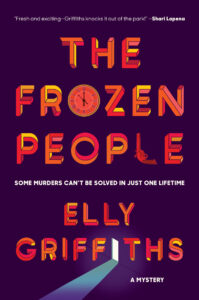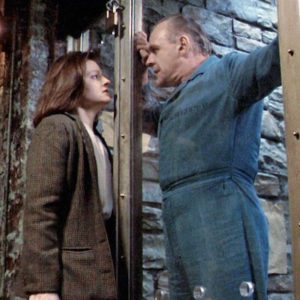Putting together this list, I realised many of my favourite time-travel books date from childhood. I remember the thrill of the clock striking thirteen in Tom’s Midnight Garden, the excitement of the Tudor plot in A Traveller in Time, and the fear of becoming trapped in the wrong time in Charlotte Sometimes. Children’s authors are brave at breaking genre restraints, maybe because children don’t read in that way; all they want is a good story.
In recent years, though, authors like Stuart Turton and Gillian McAllister have pushed the boundaries of the crime novel, adding time-travel and magic to the classic mystery format.
For years I have had the phrase ‘time-travelling detective’ running through my head. I knew I wanted to take a modern woman, like Ruth from my Norfolk books, and transport her to the nineteenth century. I also knew there would have to be a modern-day crime and the possibility of getting lost in time. It wasn’t until I came up with my detective character Ali, three-times married with bright red hair and a nose ring, that I knew I had a protagonist who could dress up in a lot of uncomfortable clothes and brave Victorian London. The Frozen People is my first foray into time-travel, but it won’t be my last.
Here are ten of my favourite time-travel books:
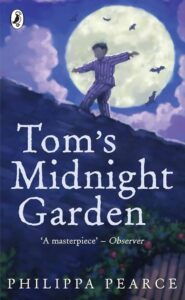
Tom’s Midnight’s Garden by Philippa Pearce
Published in 1958, this is a classic of children literature. Tom lives in a soulless flat but, when the clock strikes thirteen, he finds the door into a beautiful Victorian garden. I loved the idea of travelling in time but not in space, and you can definitely see this theme in The Frozen People. This book has the most perfect ending. When I read it to my children, I had to have several breaks to control my tears. They were quite traumatised at the time, but it doesn’t seem to have put them off reading.
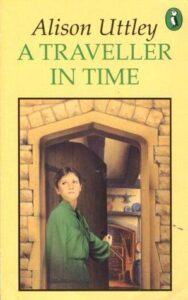
A Traveller in Time by Alison Uttley
When Penelope visits Thickers, a Tudor farmhouse, she finds herself embroiled in the Babington plot to put Mary Queen of Scots on the English throne. This book sparked a lifelong interest in time-slip narratives – and in the Tudors.
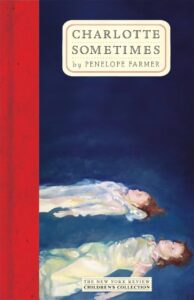
Charlotte Sometimes by Penelope Farmer
Charlotte goes to bed in her new boarding school. When she wakes up, she’s in 1918, and her name is Clare. This book is a wonderful exploration of the existential perils of time travel. Is Charlotte herself or is she Clare? What happens if she gets stuck in the past? Ali, in The Frozen People, faces the same fears.
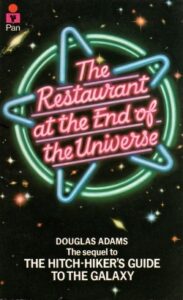
The Restaurant at the End of the Universe by Douglas Adams
This book is part of the Hitchhiker’s Guide to the Galaxy series, which is wonderful for many reasons. Not only does Douglas Adams practically invent the internet and introduce us to iconic characters like Marvin the Paranoid Android, he also nails one of the main dilemmas confronting an author writing about time travel.
‘One of the major problems encountered in time travel …’ Adams writes, ‘is not that of accidentally becoming your own father or mother…the major problem is quite simply one of grammar.’
How do you refer to events that have already happened in the past but might change in your character’s future? When Ali talks about returning to 1850 should this be in the future or past tense? Adams suggests the ‘Future Semiconditionally Modified Subinverted Plagal Past Subjunctive Intentional’ but I can’t see it catching on.
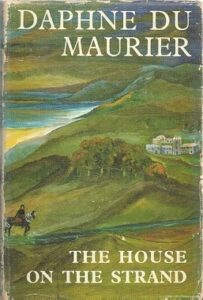
The House on the Strand by Daphne du Maurier
I’m a huge du Maurier fan and this is my favourite of her books. Dick Young is living in an ancient Cornish house when he agrees to take an experimental drug. He finds himself living in a fourteenth-century landscape, although invisible to the inhabitants. Is this real, or an effect of the hallucinogen? A fantastic gothic story with a famously unresolved ending.
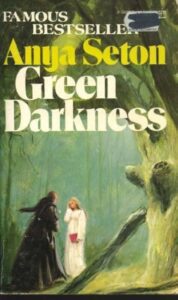
Green Darkness by Anya Seton
This was another formative book for me. Celia, an American heiress, marries Richard, a British aristocrat, and goes to live in his ancestral mansion. Almost at once, the young couple start to experience visions and disturbing occurrences. A visiting Hindu guru realises that Celia is the reincarnation of a Tudor woman who fell in love with a priest, Richard’s alter ego. Shifting between two times zones, the book explores this tragic love story as the lovers try to escape from the past. An incredibly immersive and atmospheric read.

The Time-Traveler’s Wife by Audrey Niffenegger.
This sweeping love story involving a man who can travel along his own timeline was a game-changer for speculative fiction. The sheer power of its conviction made millions of readers accept the novel’s premise and made hundreds of authors think, ‘Perhaps…’
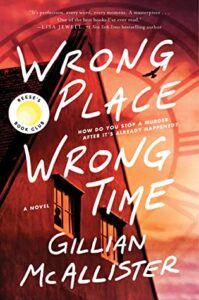
Wrong Place, Wrong Time by Gillian McAllister
What if you saw your son commit a murder and what if you could change time to prevent it ever happening? This book is a masterpiece of plotting but never loses sight of the humans at the heart of the story.
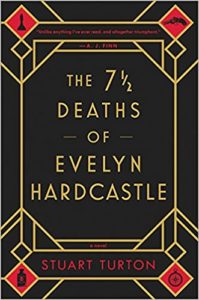
The 7 1/2 Deaths of Evelyn Hardcastle by Stuart Turton
In one way, this is a classic murder mystery, set in a country house with a variety of suspects. In every other way, it’s completely original. A man wakes every morning, unable to remember his own name, but knowing that he must solve a murder before he can escape Blackheath Manor. A dazzlingly clever book.
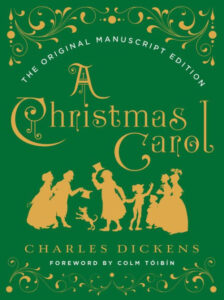
A Christmas Carol by Charles Dickens
“Don’t trust Dickens”, a character in The Frozen People tells Ali. Whether trustworthy or not, Dickens was certainly interested in time-travel. What’s A Christmas Carol but a journey back in time, through one man’s past? Dickens also wrote The Haunted Man, about a chemist who is shown what would have happened if he’d made certain life decisions differently. He talks about his regrets, “They come back to me in the stillness of the night, in the revolving years.” It’s Sliding Doors, a hundred and fifty years earlier.
***


